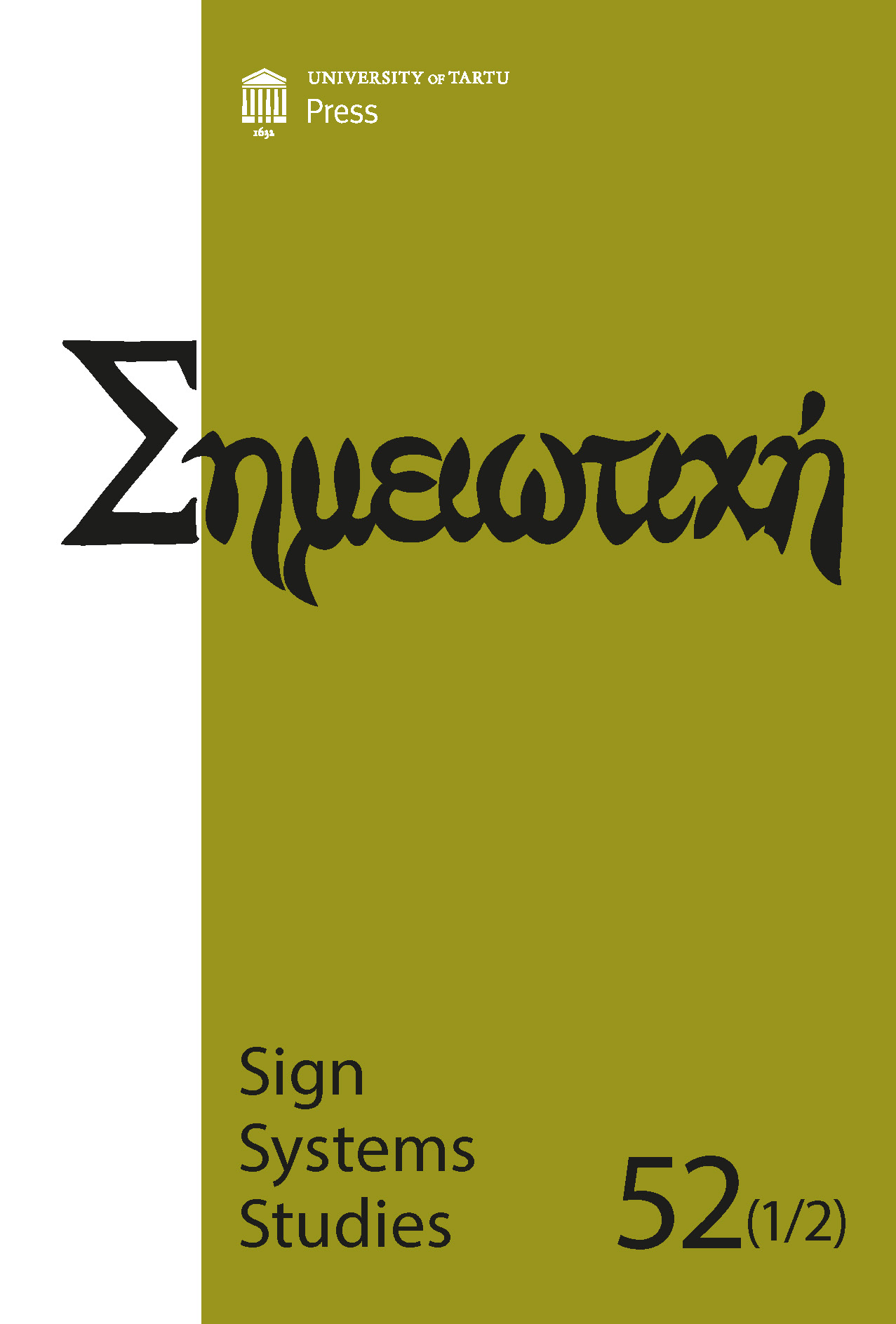A formal model of primitive aspects of cognition and learning in cell biology as a generalizable case study of the threefold logic of Peircean semiotics in natural systems
DOI:
https://doi.org/10.12697/SSS.2024.52.1-2.01Keywords:
Peircean logic, relational ontology, semiotic freedom, systems theory, biosemiotics, cognitionAbstract
A formal model of the physical processes of digestion in a hypothetical cell is developed and discussed as a case study of how the threefold logic of Peircean semiotics works within Rosen’s paradigm of relational ontology. The formal model is used to demonstrate several fundamental differences between a relational description of biological processes and a mechanistic description. The formal model produces a logic of embodied generalization that is mediated and determined by the cell through its interactions with the environment. Specifically, the synchronization of the functions of pattern recognition and semantic attribution results in an open and adaptive learning system that is stabilized by a hermeneutic circle. The relational principles of biosemiotics demonstrated through this case study are applicable to other biological systems, as well as to the relational ontology of systems theory and relativistic quantum theory.
Downloads
Downloads
Published
How to Cite
Issue
Section
License
Copyright (c) 2024 Timothy Rogers

This work is licensed under a Creative Commons Attribution-NonCommercial-NoDerivatives 4.0 International License.


